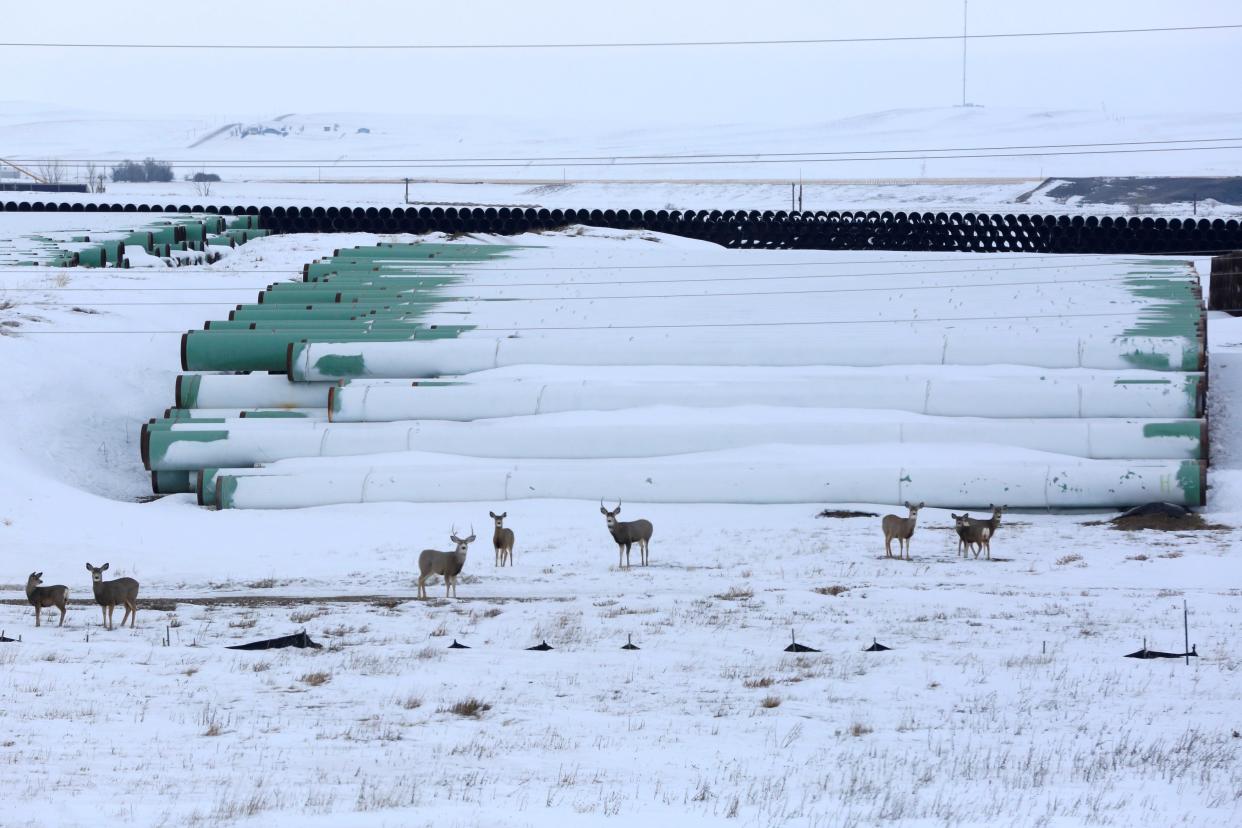‘Fossil fuel era rapidly coming to a close’: Climate activists rejoice as Keystone XL pipeline is axed

A depot used to store pipes for TC Energy Corp’s planned Keystone XL oil pipeline is seen in Gascoyne, North Dakota, January 25, 2017
(REUTERS)- Oops!Something went wrong.Please try again later.
TC Energy has formally terminated its Keystone XL pipeline project after consulting with Alberta’s government, marking a victory for Indigenous communities and opponents that have pressured Canada and the US to abandon the project.
The decision follows President Joe Biden’s revocation of a permit within his first day in office, prohibiting the pipeline to cross the northern US border and effectively shutting down its construction.
TC Energy announced that the company “will continue to coordinate with regulators, stakeholders and Indigenous groups to meet its environmental and regulatory commitments and ensure a safe termination of and exit from” the controversial project.
The project sought to carry 830,000 barrels of Canadian crude daily across 1,700 miles into refineries in the Gulf Coast.
Widespread opposition led by Indigenous groups and environmental organisations forced delays in the decadelong project, culminating in the president revoking its permit on 20 January after the project remained afloat through nearly three administrations.
“We remain disappointed and frustrated with the circumstances surrounding the Keystone XL project, including the cancellation of the presidential permit for the pipeline’s border crossing,” Alberta Premier Jason Kenney said in a statement.
In March, a group of 21 state attorneys general sued the Biden administration, accusing the president of overstepping his authority.
Opponents argued that the pipeline would have dramatic impacts on Native lands and water supplies, as it would straddle several reservations and run near the Cheyenne and Missouri rivers, which supply drinking water sources for several reservations. It also would cross hundreds of other waterways as it snaked into the southern US.
“The cancellation of Keystone XL is a reminder that this project was never needed and never in the public interest, and that it is time for the fossil fuel era to rapidly come to a close,” Oil Change International communications director David Turnbull said in a statement following the announcement.
The project’s cancellation has also underscored activists’ demands for President Biden to halt other pipeline projects, including the Line 3 pipeline from Alberta to Wisconsin, and the Dakota Access pipeline from North Dakota to Illinois.
“These projects are dangerous and unnecessary for all the same reasons Keystone XL was, and they must be halted for Biden and climate advisor Gina McCarthy to keep their commitments on climate change and Indigenous rights,” Mr Turnbull said.
Read More
Harry and Meghan announce birth of daughter Lilibet Diana
EXPLAINER: Why a rural pipeline is a climate battleground
Enbridge's Line 3 oil pipeline enters critical month in June

